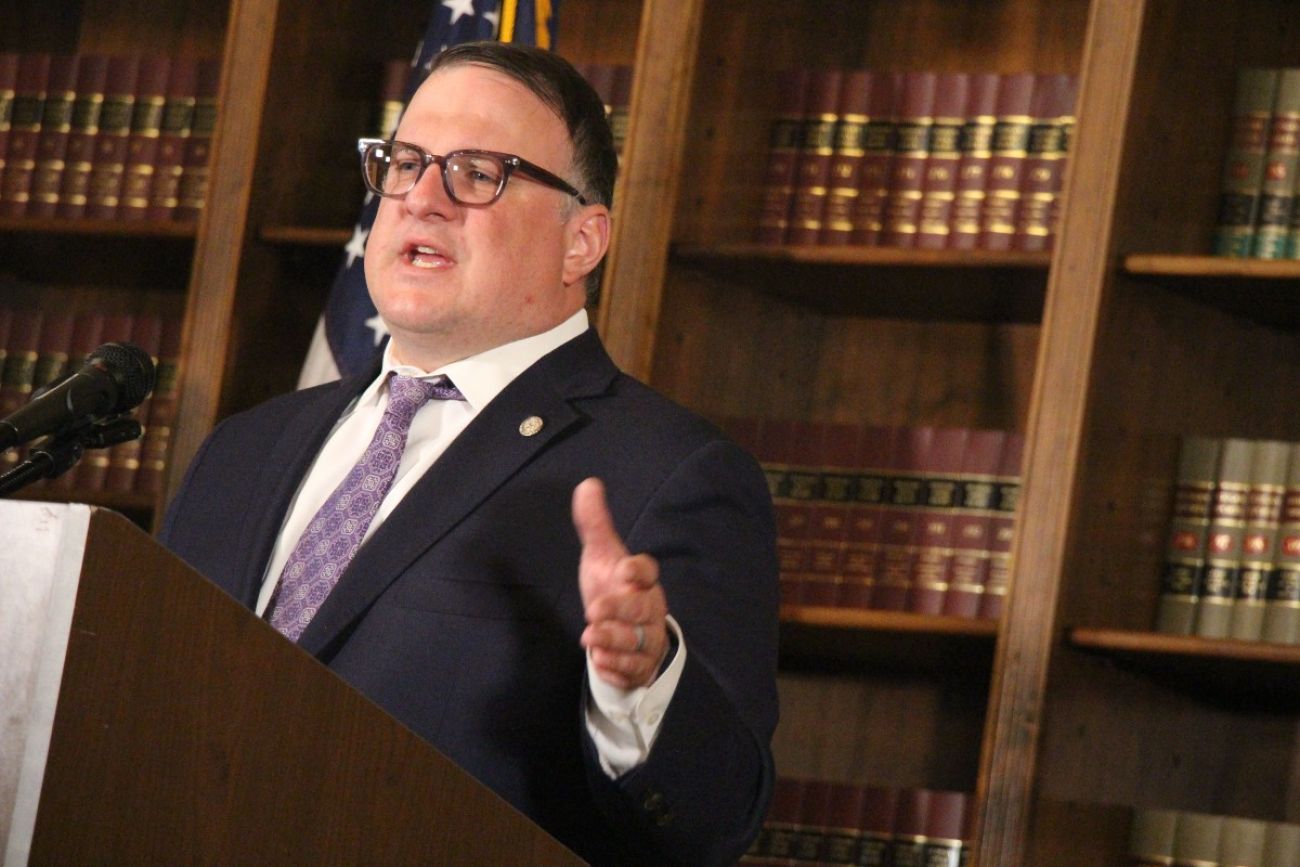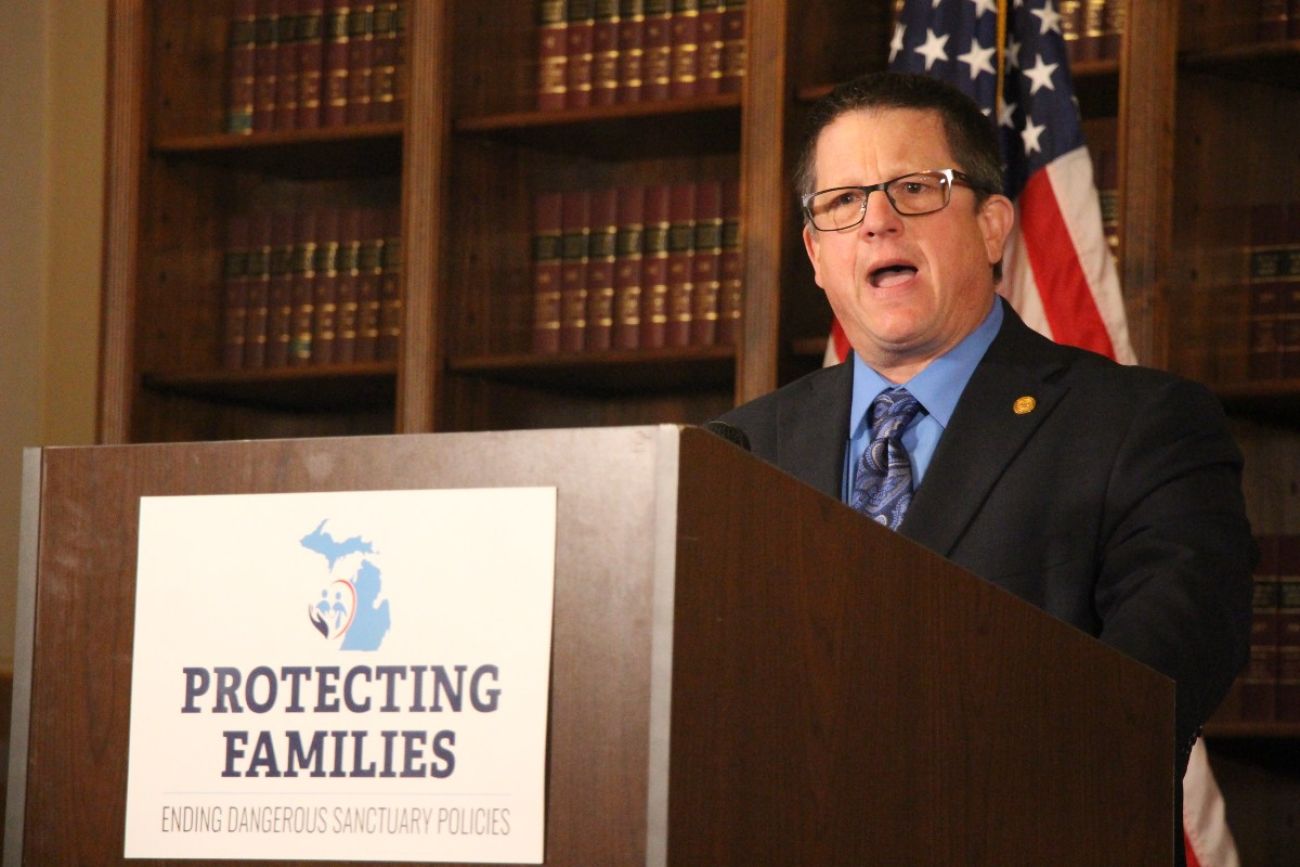Matt Hall says he’s playing long game in passing solar siting repeal Senate won’t take up

- Members of the Michigan state House on Wednesday approved bills looking to undo recently enacted clean energy siting legislation
- The bills stand no chance of being taken up by a Democrat-led Senate, which was integral in crafting the solar law in 2023
- House Speaker Matt Hall, R-Richland Township, says that’s by design as the GOP is already looking to retake the state Senate and governorship in 2026
LANSING — House Republicans on Wednesday voted to overturn recently enacted legislation that gives the state power to override a local government’s decision on where and if wind or solar projects are built in Michigan.
In a pair of 58-48 votes, lawmakers voted to repeal a part of Michigan’s Clean and Renewable Energy and Waste Reduction Act, which enabled the state to preempt any local government’s decision on large-scale energy projects.
While the legislation is apt to go nowhere this session — Senate Democrats being integral in getting it passed last term — that’s not necessarily a problem, said state House Speaker Matt Hall, R-Richland Township.
“At the end of the day, I have six more years” in office, said Hall, noting it was possible Democrats could lose their state Senate majority come 2026.
Coupled with next year’s gubernatorial election, Republicans this term are crafting “an agenda that if we don’t get done now will be ready to go with a new governor and new Senate,” Hall said.
This legislative session has already been off to a sluggish start, a Bridge Michigan review finding that it’s passed the second least number of bills within its first 90 days of meeting across the last two decades.
Though legislation introduced in one session cannot be voted on in subsequent sessions, it can be reintroduced. Hall argues policy work done this term — like on the solar siting repeal — could still be brought back in the future, possibly under a more favorable Legislature, with most of the legwork already completed.
RELATED:
- Michigan’s controversial wind, solar energy law is in effect. What to know
- Proposed state oversight of solar, wind pits energy needs v. rural rights
- Gov. Gretchen Whitmer signs energy bills to make Michigan use clean energy by 2040
Initially signed into law in 2023 — though not taking effect until 2024 — the siting component was, and still remains, a highly controversial move, even spurring on an attempt to repeal the change via ballot initiative last year. Proponents claim the move is necessary to help Michigan meet its clean energy goals, while opponents argue that local governments know what’s best for their communities when it comes to siting projects.
“Alternative energy is not truly sustainable if it’s built on the erosion of local democracy,” state Rep. Pat Outman, R-Six Lakes, said of the move.
Ahead of Wednesday’s vote to repeal the solar siting law, state Rep. Donnovan McKinney, D-Detroit, expressed concerns the move would impact energy costs throughout Michigan.

“People are literally struggling to try to figure out how they’re going to pay their bills — including their utilities,” he said, “and anything that goes against that, I can’t support.”
While he acknowledged the argument regarding maintaining local control, McKinney said the state’s ability to preempt that was a need, as “you need everybody to be bought into the system in order to lower costs across the board.”
“I’d be remiss to say that, if this is repealed, it’ll be a sad day for the state of Michigan,” he added.
Beyond repealing Democrats’ solar siting bills, a vote on another likely partisan package — aimed at barring local units of government from implementing or enforcing any law or ordinance which impedes immigration enforcement in Michigan — is expected on Thursday.
Cities or counties still maintaining their “sanctuary” status would lose state funding until they comply.
State Rep. Brian BeGole, R-Perry, told reporters that, despite Democrats being unlikely to take up either package, “we’re going to continue down this path. We’re going to keep putting Michiganders first and do what we have to do.”
See what new members are saying about why they donated to Bridge Michigan:
- “In order for this information to be accurate and unbiased it must be underwritten by its readers, not by special interests.” - Larry S.
- “Not many other media sources report on the topics Bridge does.” - Susan B.
- “Your journalism is outstanding and rare these days.” - Mark S.
If you want to ensure the future of nonpartisan, nonprofit Michigan journalism, please become a member today. You, too, will be asked why you donated and maybe we'll feature your quote next time!




